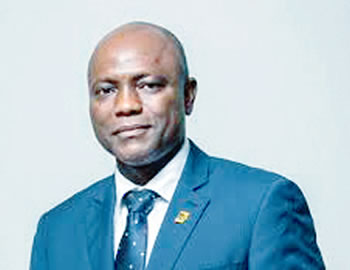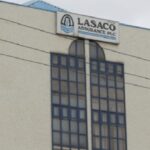Economic recovery and diverse opportunities will characterise Nigeria’s economy in 2025, according to experts at the First Bank Nigeria Economic Outlook 2025 event.
While acknowledging the persistent challenges of food, energy, and manufacturing deficits, the speakers emphasised that these obstacles also present significant opportunities for businesses and investors ready to engage strategically in the economy.
Mr. Olusegun Alebiosu, CEO of FBN Group, stated that although Nigeria faced inflationary pressures and economic strain in 2024, signs of recovery are becoming evident. Inflation peaked at a three-decade high of 34.60 percent in November 2024, straining household and corporate incomes. However, fiscal reforms and improving government revenue indicate that optimism for 2025 may be well-founded.
Alebiosu highlighted several positive developments, including the stabilisation of the foreign exchange market due to the introduction of the electronic forex matching system in December 2024. Additionally, increased competition in the downstream petroleum sector has contributed to falling Premium Motor Spirit (PMS) prices. The resumption of operations at the Port Harcourt and Warri refineries further underscores the potential for sustained economic progress.
“With the government’s proposed N49.7 trillion 2025 budget expected to provide sufficient economic stimulus, the projected GDP growth rate of 3.68 percent for 2025 is a realistic and achievable target,” Alebiosu said.
He also reassured FirstBank customers of the institution’s commitment to supporting them through this transitional phase. “This year holds immense potential for discerning businesses and individuals who are ready to seize emerging opportunities,” he added.
Keynote speaker, Biodun Adedipe, stressed that Nigeria’s deficits in food, energy, and manufacturing sectors present unique opportunities for economic growth. “While these challenges are significant, they also hold the potential to drive inclusive and sustainable growth in 2025,” he stated.
Adedipe projected a stable exchange rate for the naira at N1,574.4/$1, with the Monetary Policy Rate (MPR) expected to hover between 20 percent and 23.5 percent. The GDP growth rate for 2024 is anticipated to close at 4.1 percent, a notable figure globally, though heavily driven by the services sector.
To reduce food inflation and address food security, Adedipe emphasized the need for structural changes beyond monetary policy. “Food availability and affordability are critical,” he said.
“Nigeria must tackle the root causes of its food deficit, including insecurity, post-harvest losses, and inadequate storage and processing facilities. These challenges represent opportunities for private sector investments, provided the environment is conducive.”
On the energy front, Adedipe noted that the expanded capacity for local refining of crude oil and the transfer of oil assets from international to domestic operators could ease foreign exchange pressures. ?The shift toward local refining and the reactivation of capped oil wells are key factors that could stabilize the naira and reduce import dependency,? he added.
Bismarck Rewane, CEO of Financial Derivatives Company, highlighted the growing trend of consumer resistance due to income constraints and substitution effects. ?Manufacturers must reconsider how they transfer costs to consumers. Understanding market dynamics and adjusting pricing strategies will be crucial in 2025,? he advised.
Rewane also predicted a relatively less difficult year compared to 2024, with economic conditions expected to improve gradually.
Ugo Dre, founder of Nairametrics, urged organizations to explore ways to support their workforce amid ongoing economic challenges. ?Employers can consider providing financing options and other support mechanisms to enhance employee welfare and productivity,? he suggested.
The FirstBank Nigeria Economic Outlook 2025 highlighted the intersection of challenges and opportunities in the Nigerian economy. Experts agreed that while the country faces persistent structural issues, there is significant potential for growth and recovery. With strategic investments, policy consistency, and private sector engagement, 2025 could mark the beginning of a more stable and inclusive economic trajectory.
FirstBank’s commitment to partnering with its customers reinforces the optimism surrounding the opportunities that lie ahead. As Nigeria enters 2025, businesses and individuals who position themselves strategically are poised to benefit from the evolving economic landscape.
READ ALSO: Recapitalisation: Sterling Financial Holdings Company achieves major milestone
WATCH TOP VIDEOS FROM NIGERIAN TRIBUNE TV
- Let’s Talk About SELF-AWARENESS
- Is Your Confidence Mistaken for Pride? Let’s talk about it
- Is Etiquette About Perfection…Or Just Not Being Rude?
- Top Psychologist Reveal 3 Signs You’re Struggling With Imposter Syndrome
- Do You Pick Up Work-Related Calls at Midnight or Never? Let’s Talk About Boundaries







